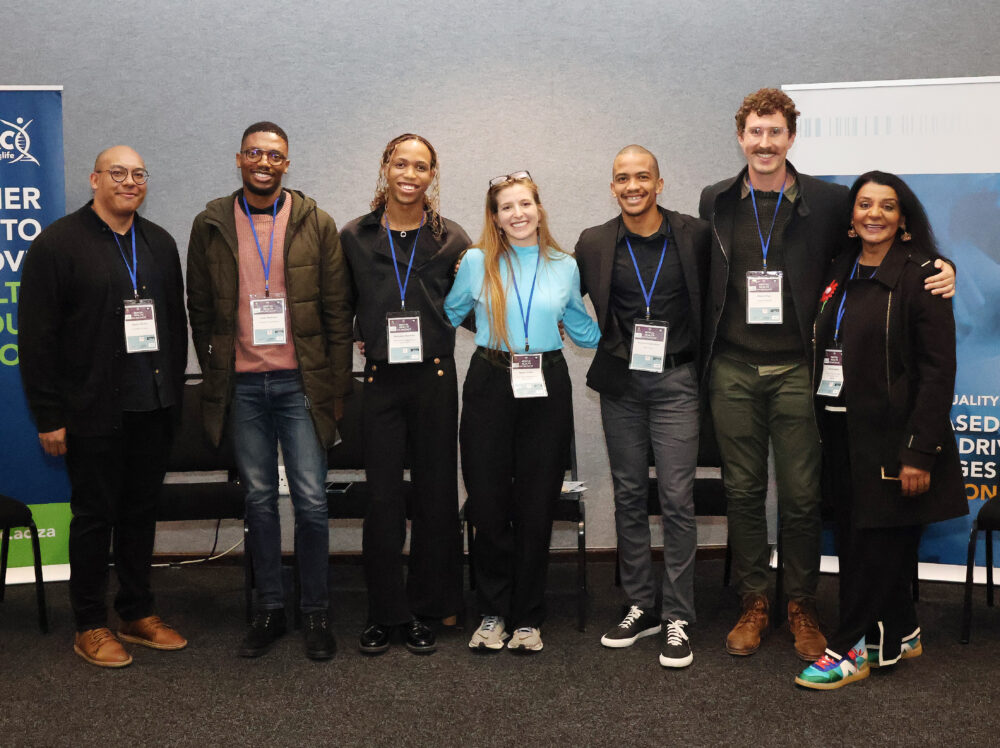The Youth Health Economics Focal Area (Health Systems Research Unit, South Africa) hosted a stakeholder engagement workshop (23rd June 2025) as part of the launch of their latest project entitled PAMHoYA (Co-development of a Mental Health Data Discovery Platform and Harmonisation of Mental Health Measures for Young People in South Africa). A first for mental health data science on the African continent, this project brings together a multi-disciplinary team of health economists, epidemiologists, psychologists, data scientists and lived experience experts from the University of Witwatersrand (co-lead), Stellenbosch University, Sol Plaatje University and University College London. It is one of 20 projects funded under the Mental Health Data Prize Africa initiative, funded by African Population and Health Research Center (APHRC) in partnership with Wellcome, United Kingdom (https://www.mentalhealthdataprizeafrica.aphrc.org/powering-a-new-era-of-mental-health-in-africa-through-data.html)
The aim of the PAMHoYA launch workshop was to i) introduce the project; ii) understand the current mental health landscape for young people from research through to policy and community programmes; iii) establish a multi-disciplinary stakeholder advisory board to guide and feedback on project progress and outputs.
Early career mental health epidemiologist, Ms Audrey Moyo (SAMRC/SUN), set the scene by presenting findings from her PhD which showed the high prevalence of common mental health disorders (depressive symptoms 8.5%, anxiety symptoms 7.5%) among 15-24 year-olds in South Africa. However, she indicated that these results must be interpreted with caution as they are based on a limited number of datasets and hence we need Big Data to improve on the accuracy and representativeness of these research findings.
Dr Trust Gangaidzo (Principal Investigator- PAMHoYA, WITS) indicated that the PAMHoYA project aims to narrow this research gap by pooling and standardising measures from various South African datasets to paint a more accurate picture of the mental health burden and trends among young people. Early career data manager on the project, Mr Augustine Khumalo (SAMRC) indicated how the project would leverage the South African Population Research Infrastructure Network (South African Population Research Infrastructure Network | SAMRC) to build the platform.
World-renowned mental health academic, Prof Crick Lund (Kings College), highlighted the importance of co-developing mental health solutions with young people and commended the team for ensuring lived experience young expert voices are part of the PAMHoYA project.

Local adolescent psychology expert, Prof Eugene David (University of Pretoria), led a panel discussion with mental health advocates working at the frontline to understand their data needs. “For me, data isn’t just numbers – it’s a voice. And when youth are in control of that voice, it becomes a catalyst for real, lasting change. Let’s use data to drive change, rather than just collecting it for its own sake. Let’s use data to build a world where mental health and well-being are accessible to all, and where young people are heard, valued, and supported.” Samukelo Nxumalo (South African Federation for Mental Health) “Good data means being able to hold someone accountable—whether it’s a service provider, someone in an influential position, or someone in power—to ensure that services are available. Data tells a story and reveals the real picture.” (Linda Mazibuko, Lived Experience Expert, University of South Africa).
Ms Jeanette Hunter (Deputy Director General Primary Health Care- National Department of Health) and Dr Dudu Shiba (Director for the Mental Health and Substance Abuse Programme) applauded the PAMHoYA team for their efforts in bringing together government partners and civil society to contribute to this important data platform. They highlighted that this data platform would be a gamechanger for strengthening mental health polices and programmes among young people in South Africa.
Reflecting on the meeting, Dr Donela Besada, leading mental health economist (SAMRC) indicated that the PAMHoYA dataset fills a critical gap for economic modelling in adolescent mental health. In the South African Mental Health Investment Case (https://www.samrc.ac.za/research-reports/mental-health-investment-case-south-africa) we saw those early interventions—like social and emotional learning (SEL) programmes in schools—can be very cost-effective. Strengthened data will help build a stronger case for investing early, where returns are likely highest due to long-term gains in education, employment, and wellbeing
Dr Darshini Govindasamy (senior PI) closed the meeting by acknowledging the strong support received from the funders for building not just the pipeline of young African mental health data scientists but capacity building lived experience experts alongside the project.
For more info, please contact the project leads:
- Dr Trust Gangaidzo- Post Doc-Health Economics, Centre for Health Policy, University of Witwatersrand ([email protected])
- Dr Darshini Govindasamy- Specialist Scientist- Health Economics (South African Medical Research Council) ([email protected])